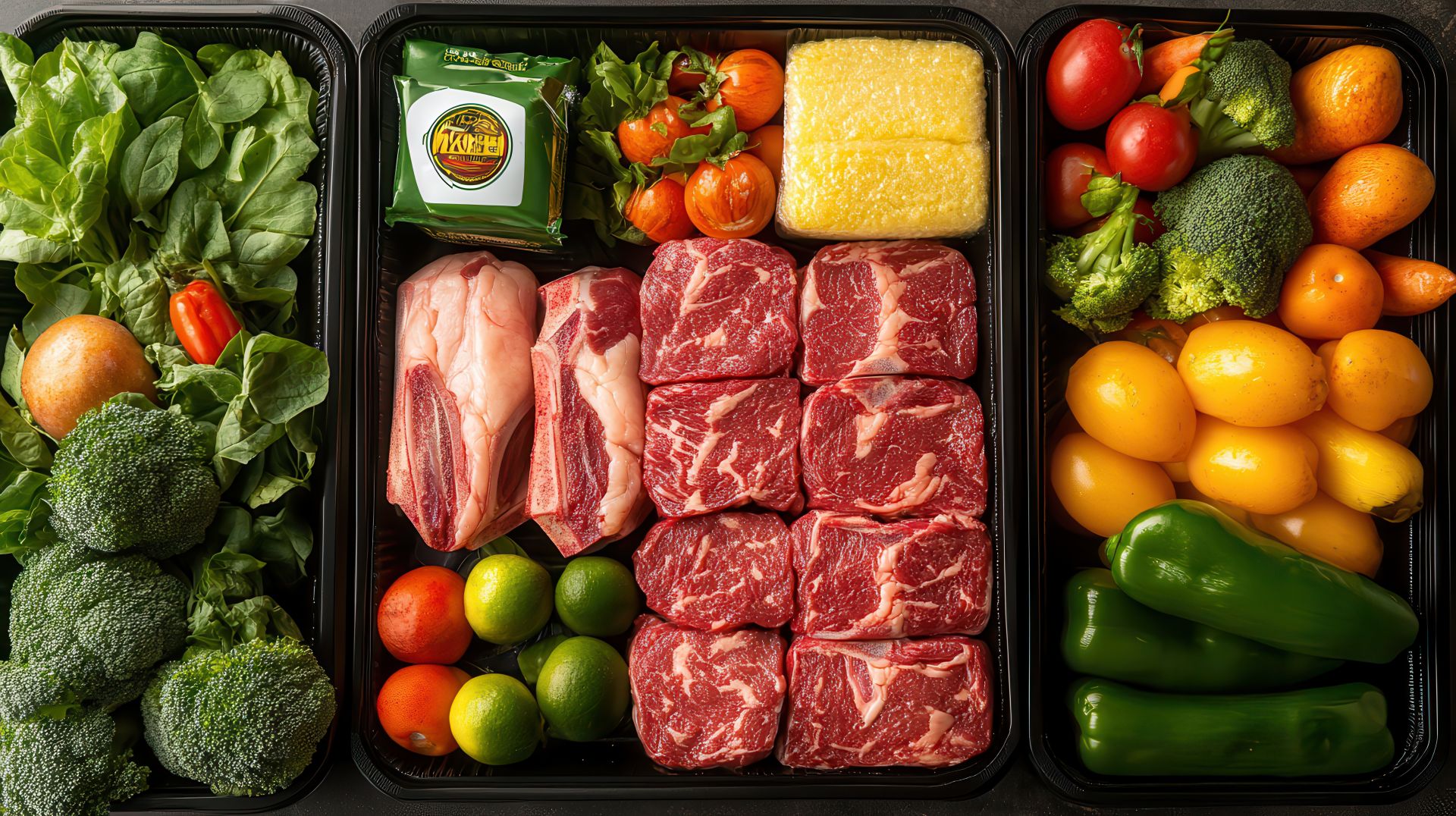How Temperature Affects the Lifespan of Fresh Produce

Strong 8k brings an ultra-HD IPTV experience to your living room and your pocket.
When you bring fresh fruits and vegetables home from the store, you might not realize how much temperature can affect their lifespan. Fresh produce is delicate, and keeping it at the right temperature is key to making it last longer. In this article, we will explore how temperature affects different types of produce and give you some tips on how to store them properly.
Why Temperature Matters for Fresh Produce
Fresh produce contains moisture, sugars, and other nutrients that help it stay fresh and tasty. However, temperature plays a huge role in how long these nutrients stay intact. If produce is stored too hot or too cold, it can spoil quickly or lose its flavor. Understanding the best temperatures for different types of produce is essential for keeping them fresh.
Fruits and vegetables have a certain “ideal” temperature range. If they are kept too warm, they can ripen too quickly and go bad. On the other hand, if they are kept too cold, they can freeze, lose their texture, or develop off-flavors. Let’s break down how temperature affects different types of produce and how to store them properly.
Storing Fruits at the Right Temperature
Fruits like apples, bananas, and berries are sensitive to temperature. For example, apples last longer when stored in a cool place, but they should never be stored in the fridge right after they are bought. If you store apples in the fridge, they can lose their flavor and become mushy. Instead, keep them in a cool, dry place, away from direct sunlight. Bananas, on the other hand, should be stored at room temperature, as they ripen too fast in the fridge.
If you have berries, they should also be kept in the fridge to extend their freshness, but make sure to only wash them right before eating. Moisture can cause berries to spoil quickly, so it's best to store them in a dry container.
Vegetables and the Temperature Rule
Vegetables like tomatoes, cucumbers, and peppers need to be stored at slightly warmer temperatures than others. Tomatoes, for instance, are best stored at room temperature until they are ripe. Once they’re fully ripe, you can put them in the fridge to slow down further ripening and keep them fresh longer.
On the other hand, vegetables like carrots, leafy greens, and broccoli do well in the fridge. These types of vegetables benefit from cool temperatures because they keep their texture and nutrients longer. When storing leafy greens, it's essential to keep them dry. Moisture in the fridge can cause them to wilt and spoil faster.
The Role of the Freezer
Some produce can be stored in the freezer for long periods, which is helpful if you want to store fruits and vegetables for the winter or save them for later use. However, freezing produce requires a bit of care. Not all vegetables and fruits freeze well, and some can lose their texture or flavor when thawed.
For instance, potatoes should never be stored in the fridge, but they can last for a long time in a cool, dry place. If you want to store potatoes for even longer, freezing them is an option. However, freezing raw potatoes can cause them to become mushy when you thaw them. To freeze potatoes, I recommend cooking them first. If you're interested in learning how long potatoes last, check out this How Long Do Potatoes Last article that explains the effect of temperature and humidity on potato lifespan.
Some fruits, like berries and mangoes, freeze well and can be kept in the freezer for months. To prevent freezer burn, make sure to store them in airtight containers or freezer bags.
The Best Temperature for Different Types of Produce
Here’s a quick guide to help you understand the ideal temperature for storing various types of produce:
- Apples: Store at room temperature for a few days, then move to the fridge if you want them to last longer.
- Bananas: Keep at room temperature; avoid the fridge unless they’re overripe.
- Tomatoes: Store at room temperature until ripe, then refrigerate if needed.
- Carrots: Keep in the fridge, in a plastic bag or container.
- Leafy greens: Refrigerate in a sealed bag or container.
- Potatoes: Store in a cool, dry place, away from sunlight (not in the fridge).
By following these temperature guidelines, you’ll be able to extend the freshness of your fruits and vegetables and reduce waste. It’s important to check the specific needs of different produce because, while some are sensitive to cold, others need it to stay fresh.
The Best Way to Store Fresh Produce
Now that we know how temperature affects the lifespan of fresh produce, here are a few general storage tips to keep in mind:
- Use the right containers: Many fruits and vegetables need air circulation, so choose containers that allow airflow. For example, use perforated plastic bags or containers with vents.
- Avoid storing everything in the fridge: Not all produce benefits from the cold. As we’ve seen, certain fruits (like bananas and tomatoes) should be kept at room temperature. Overcrowding your fridge can also affect airflow and cause spoilage.
- Don’t wash produce until you’re ready to use it: Washing fruits and vegetables before storing them adds moisture, which can lead to mold and quicker spoilage.
- Keep produce away from sunlight: Direct sunlight can make produce ripen too quickly. Store them in a cool, dark place.
- Monitor for ripeness: Regularly check your fruits and vegetables for signs of ripening or spoilage. If one item starts to go bad, it could cause others nearby to spoil faster.
Temperature is one of the most important factors in keeping your fresh produce from going bad too quickly. By understanding how temperature affects the lifespan of different fruits and vegetables, you can extend their freshness and enjoy them for longer. Whether you’re storing apples, potatoes, or leafy greens, always follow the right temperature guidelines and proper storage methods.
So, next time you buy fresh produce, take a moment to think about where and how you store it. By keeping it in the right conditions, you’ll be able to enjoy your fruits and vegetables at their best for longer.
Note: IndiBlogHub features both user-submitted and editorial content. We do not verify third-party contributions. Read our Disclaimer and Privacy Policyfor details.


